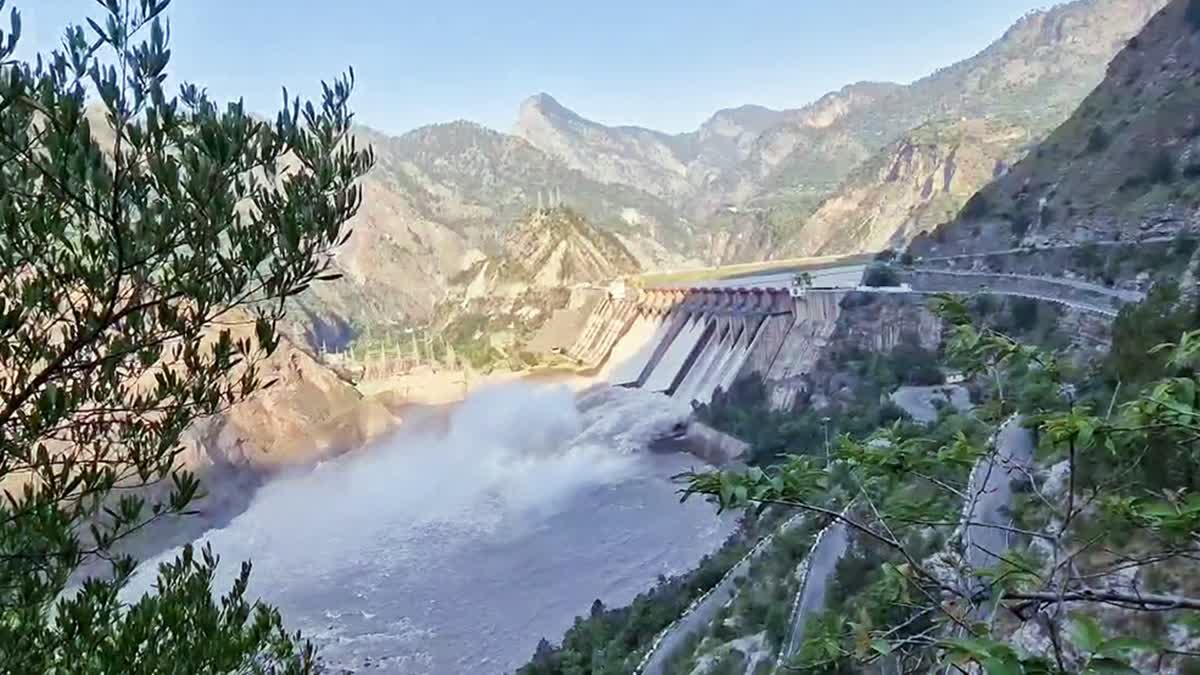Jammu: Chenab valley, the hub of hydro-power generation in Jammu and Kashmir, is being allegedly neglected when it comes to providing round the clock electricity to the consumers, who complain of suffering in every aspect after the construction of several power projects on the river Chenab in the region.
Once winter arrives, so does the time for scheduled and unscheduled power cuts thus causing the people to suffer in the extreme cold conditions.
Locals while speaking with ETV Bharat said that they have to bear the brunt of over 10 hours of scheduled power cuts during the peak winters and there is no limit to unscheduled power cuts whenever rain or snow lashes the area. For a couple of months during peak winters, the scheduled power cuts go up to 12 hours a day, they said.
Calling it an irony, locals from Chenab valley said that the government uses their resources to generate electricity and sells the same to outside Jammu and Kashmir to generate revenue, while they were being deprived of their own electricity.
“Getting the hassle-free electricity 24x7 is our right and we are the immediate sufferers of the construction of reservoirs of hydroelectric power projects. But in return what we get is power cuts which at times go beyond 10 hours a day during the winter months,” claimed Mehraj Banday, president of Chamber of Commerce Doda.
“We have reached out to the district administration and power development department authorities many at times but to no avail. The situation continues to remain the same despite the fact that electricity theft has decreased to a much greater extent after installation of meters in many areas,” Banday said.
Similarly, in Kishtwar district, where most of the hydro power generation projects are being constructed, people have to suffer due to less power supply.
“Presently, the scheduled power cuts have started but they will get more frequent once the rain and snow lash the area. There seems to be no mechanism to deal with power cuts,” Abrar Ahmed Zargar, a trader from Kishtwar said.
The power development department is of the opinion that the demand of electricity increases during the winters and despite providing additional power to the area, the demand keeps increasing.
“During summers we were providing around 40 megawatt for Chenab valley and during winters the supply is around 70 megawatts but still it is not enough to meet the demand. It is up to the people to stop power theft so that they get uninterrupted power supply,” claimed K K Thapa, Chief Engineer PDD Jammu.
He said that though the theft of electricity has decreased but still the demand is increasing. “The government can’t spend money only on buying the power and distributing the same to the people,” he added.
“Giving free electricity is the authority of the government and they will decide what to do. Our department will do whatever we can to ensure hassle-free power to the people of Chenab valley,” the Chief Engineer further said.
As per a survey of government, there is possibility of generating around 16000 megawatts of hydro power from Chenab river which passes through three districts of Chenab valley, which include Kishtwar, Doda and Ramban and also passes through Reasi district before entering the plains of Jammu district and ending up in Pakistan. Presently hydro power projects like 690-mega watt Salal hydroelectric project is located in Reasi district on river Chenab which was completed in 1987, 390-megawatt Dul-Hasti project in Kishtwar district and 900-megawatt Baglihar hydro power project located in Ramban district and its reservoir in Doda district.
The projects like 850-megawatt Ratle power project, 1000-megawatt Pakal-Dul project, 624 Kiru power project and 540-mega watt Kwar power project are under construction and after their commissioning the total power generation on river Chenab will go beyond 5000 megawatts. But these projects are believed to have posed a threat to ecological balance and in a few places landslides have also occurred.
As per the census of 2011, over 10 lakh people are residing in three districts of Chenab valley and the number has increased tremendously in the past 13 years but the people haven’t been compensated for the damages occurred due to the construction of hydro power projects.
Read more:



